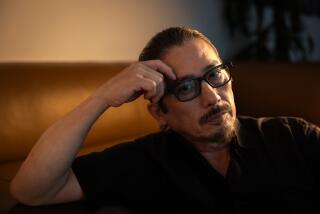Conviction of Former Japanese Leader Tanaka Upheld
- Share via
TOKYO — Former Prime Minister Kakuei Tanaka, 69, who for more than a decade reigned as a kingmaker in Japanese politics, lost another battle today.
The Tokyo High Court, an appeals tribunal, upheld the October, 1983, verdict of a district court that found him guilty of accepting a $1.8-million bribe from the Lockheed Aircraft Corp. during his 1972-74 term in office and sentenced him to four years in jail and a fine of 500 million yen ($1.8 million at the exchange rates that prevailed when the bribes were paid).
The ruling came 11 years after Tanaka was arrested on July 27, 1976, but it still failed to end what has come to be known in Japan as the “Lockheed incident,” the biggest scandal in the nation’s political history.
Tanaka’s son-in-law, Naoki Tanaka, a lower house representative, read a statement issued by the former prime minister in which Kakuei Tanaka said he will appeal to the Supreme Court.
“It is extremely regrettable that what I have been been saying from the start was not understood. I hope my legitimacy will be made clear by the Supreme Court,” Tanaka said in the statement.
It was the second setback this month for the man who, from 1972 until he was partially paralyzed by a stroke in February, 1985, reigned as the ruling Liberal Democratic Party’s most influential politician, making or breaking every prime minister who has served since he left office. Most recently, his support put Prime Minister Yasuhiro Nakasone into power in 1982.
Earlier this month, Noboru Takeshita, 63, once a loyal Tanaka lieutenant, broke up the 143-man Tanaka faction of ruling party members of Parliament to set up his own faction of 113 followers in preparation for a party election in October to pick a successor to Nakasone. The remaining Tanaka faction members split into a small band of 13 supporting Susumu Nikaido, 77, and an independent group with no leader.
Both Takeshita and Nikaido have announced they will seek the party presidency when Nakasone’s term ends Oct. 30. The post, by tradition and by virtue of the party’s control of Parliament, carries with it the premiership.
Today’s ruling drew down the curtain on determination of facts in the bribery case. Under legal procedure, appeals to the Supreme Court can be made only on questions of procedure, not fact.
Judge Takeo Naito, in his ruling, condemned Tanaka for turning the government administration into an instrument for personal profit-making by persuading All Nippon Airways to purchase 21 Lockheed L-1011 Tristar airbuses in 1972. Tanaka’s action on behalf of Lockheed, he declared, spread a mood of corruption throughout Japanese society.
Other Sentences Upheld
Naito also upheld jail sentences handed down in 1983 against Tanaka’s secretary and two officials of Marubeni, a giant trading firm that acted as Lockheed’s official agent, but suspended a two-year jail term for Hiroshi Ito, a third former Marubeni executive. Ito, the judge ruled, had only followed his superiors’ orders in handing over the $1.8 million bribe to Tanaka’s secretary.
Opposition leaders said they will submit a resolution demanding that Tanaka resign from the seat in the lower house of Parliament that he has held since 1947.
The ruling Liberal Democratic Party, meanwhile, announced the schedule for procedures to select the leader who will become Japan’s next prime minister--a process in which Tanaka was expected to exert no influence for the first time since 1976.
Candidates seeking the presidency of the party must submit applications on Oct. 8, the party announced. Should four aspirants run, a primary will be held Oct. 28 among nearly 2 million dues-paying members of the party, but if three or fewer candidates file, only the party’s 446 members of both house of Parliament will choose a new leader.
If the primary is held, a follow-up election will be held Oct. 30 with the 446 politicians casting the final votes for the three top vote-getters in the primary. If no primary occurs, the final selection of a new party president--and, thus, prime minister--would occur earlier in the month, at a date yet to be determined.
More to Read
Sign up for Essential California
The most important California stories and recommendations in your inbox every morning.
You may occasionally receive promotional content from the Los Angeles Times.













